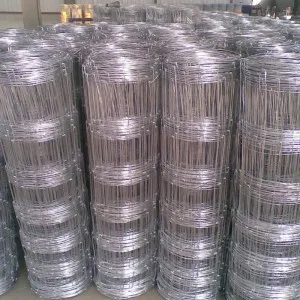Common Framing Nails Essential Tools for Construction Projects
Framing nails are one of the fundamental components in the construction industry, playing an essential role in structuring buildings, homes, and various other projects. Understanding the characteristics, types, and applications of common framing nails is crucial for professionals and DIY enthusiasts alike.
What Are Framing Nails?
Framing nails are long, sturdy nails designed specifically for framing applications. They are used primarily to connect wooden structural components like studs, joists, and rafters. Due to their robust nature, framing nails can provide exceptional holding power, ensuring that the framework of a building remains secure and stable over time. Typically made from steel, framing nails can be galvanized or coated to enhance their resistance to corrosion, making them suitable for various environments.
Types of Framing Nails
There are several types of framing nails, each tailored for specific tasks and materials. Here’s a breakdown of the most common types
1. Smooth Shank Nails These nails have a straight, smooth surface. They are easy to drive in but may not provide the best holding power under stress. Smooth shank nails are often used in less demanding applications.
2. Ring Shank Nails As the name suggests, these nails have a series of rings around their shank. This design significantly increases their grip and resistance to being pulled out, making them ideal for structural framing and applications where extra holding force is required.
3. Spiral Shank Nails Similar to ring shank nails, spiral shank nails feature a spiral design that enhances grip. They are less likely to split the wood and are often used in heavy-duty applications where durability is paramount.
4. Collated Nails These nails come in strips or coils and are designed for use with nail guns. Collated nails make the nailing process much faster and more efficient, especially on large projects.
common framing nails

Sizes and Lengths
Framing nails come in various sizes and lengths, typically ranging from 2 to 3.5 inches. The choice of nail length depends on the material being fastened and the thickness of the lumber. For example, a common choice for framing walls is a 3-inch ring shank nail, which provides ample length to penetrate through the studs and into the sill plate or bottom plate.
Applications of Framing Nails
Framing nails are used in a variety of construction applications, including
- Wall Framing They are commonly employed to connect wall studs, top plates, and bottom plates in residential and commercial buildings. - Floor Framing In floor systems, framing nails secure joists to beams and other structural components.
- Roof Framing Roof trusses and rafters rely on framing nails to ensure stability and strength against wind and other forces.
- Decking and Pergolas Framing nails are also used in outdoor constructions like decks, where resistance to moisture and environmental factors is key.
Conclusion
In conclusion, common framing nails are integral to construction and carpentry. Their diverse types, sizes, and applications make them indispensable tools for professionals and DIYers alike. Understanding the different types of nails, their properties, and proper usage can significantly impact the quality and stability of a construction project. Whether you are building a new home, renovating an existing space, or embarking on a DIY project, choosing the right framing nails is essential for ensuring that your structure stands the test of time. Always remember to consider factors such as wood type, environmental conditions, and specific project requirements to select the most appropriate fasteners for your needs. By doing so, you’ll help ensure the strength and durability of your construction endeavors.

















